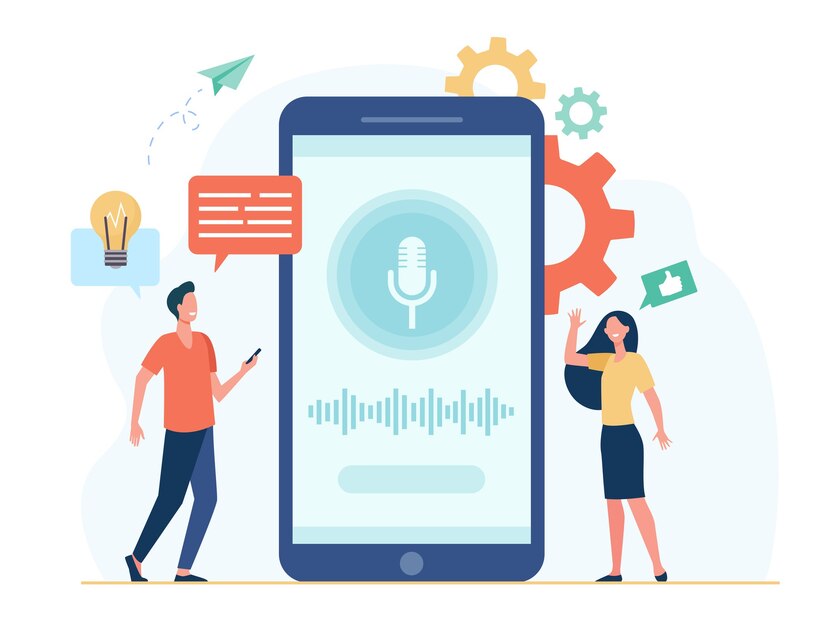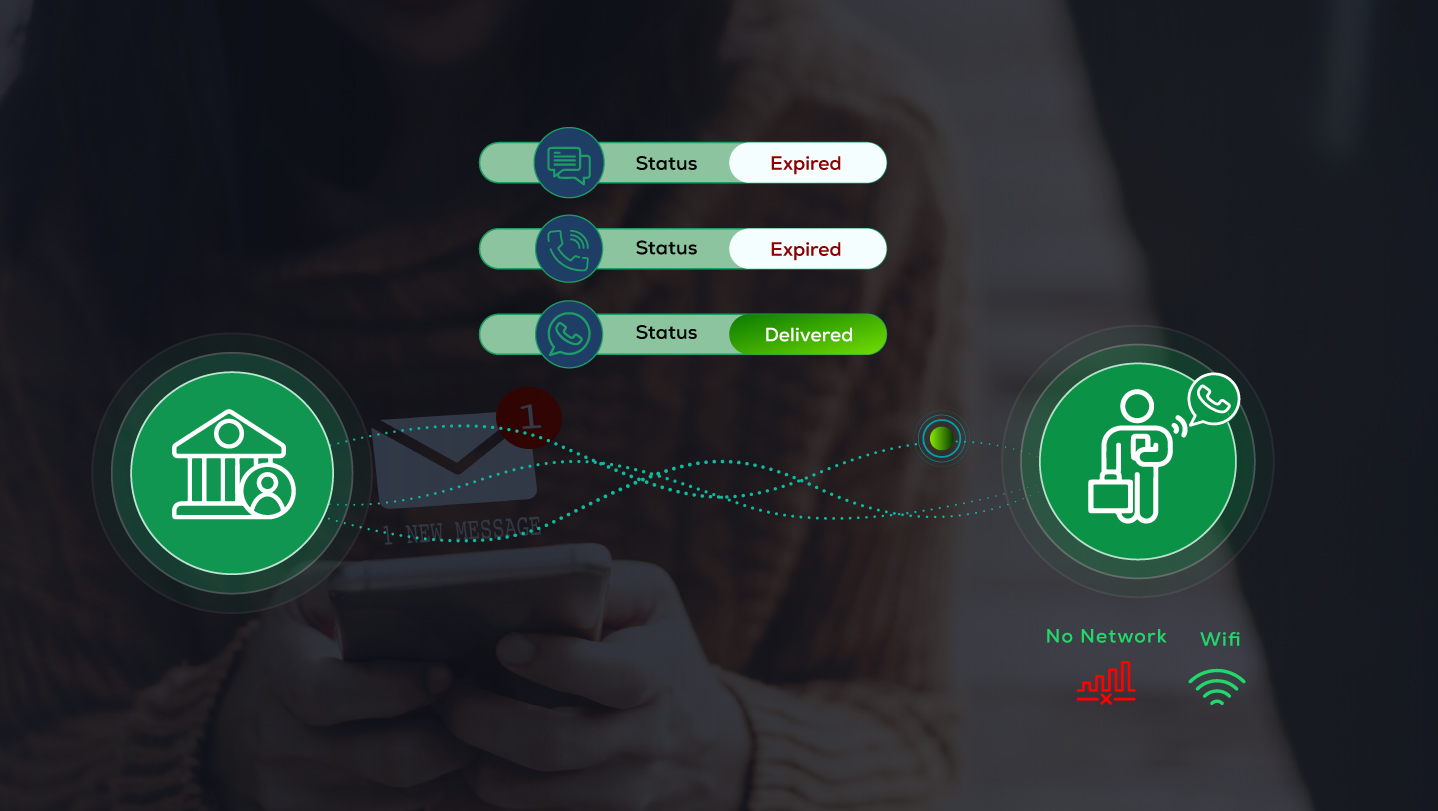Difference between API and SDK
-
March 13, 2024
-
6 min read

Today, one of the main reasons behind a successful business lies in its ability to offer uninterrupted connectivity, resulting in seamless communication being an important factor. Voice APIs and SDKs have emerged as highly essential communication technologies, with statistics indicating an increase in their major growth in industries.
It is evident that these solutions play a crucial role in modern operations. However, the question that often arises is, “What is the difference between SDK and API?
This blog aims to answer these questions by diving into the significant differences between Voice APIs and SDKs, shedding light on how each serve as a driving force for streamlined communications.
What is API?
An API stands for Application Programming Interface, which is an essential framework consisting of standard protocols and tools that enable the construction of software applications. It allows developers to create seamless software that is compatible with other applications, streamlining the development of complex systems.
How do APIs work?
Following its true definition, APIs are mediums that allow seamless communication between separate platforms or services. They function as messengers that send requests to data or service providers and deliver the received information or action responses to the target.
Here’s how the process unfolds:
- Request
An application sends a request to an API, describing the type of data or action it needs. This request includes all the necessary details regarding the information required.
- Processing
The API processes the request and interacts with the system or service the information is designed to connect with. Then it collects the required data or triggers the required action.
- Response
Once the required action or information is gathered, the API delivers the response to the target. This information typically comes in a structured format like JSON or XML.
- Integration
Once the response is confirmed, the target application can now utilize the received information and integrate it into its own operations.
Use cases of API
As APIs are highly versatile, they can be used in several applications in various ways. Some major use cases of APIs include:
- Social Media Integration
APIs help social media platforms like Facebook, Twitter, WhatsApp and Instagram to integrate with other applications without any problems, ensuring seamless content sharing across different platforms.
- Payment Gateway Integration
Payment gateways like PayPal and Stripe use APIs to collaborate with e-commerce websites like Amazon and others to provide a secure and convenient way to process payments.
- Weather Forecasting
From travel apps to event planning platforms, APIs are used for their valuable real-time weather data that can be integrated seamlessly with other applications.
- Maps and Geolocation
APIs also provide mapping and geolocation data, easily integrated into ride-sharing and food delivery applications like Uber and Zomato to improve user experiences.
- Machine Learning
APIs have provided innovative machine-learning models like chatbots, recommendation engines, fraud detection systems, and more that have made online interactions immersive and user-friendly.
What is SDK?
An SDK stands for Software Development Kit, which is a complete set of software development tools designed for a seamless installation process. It is typically created for a specific hardware platform or operating system combination and includes all the necessary components like a compiler, debugger, code samples, libraries, testing and analytics resources, documentation, and even machine learning models.
Benefits of SDK
The advantages of using an SDK in software development are significant to many industries. Some major benefits include:
- Faster Development
SDKs come with a set of pre-built tools that act as the building blocks of software development. This eliminates the need to create features from scratch, resulting in time management.
- Improved User Experience
SDKs allow businesses to create a user-friendly application that enhances customer satisfaction and creates more client loyalty.
- Cost Savings
With the help of SDKs, developers can save both development time and costs by using their pre-built components to construct applications efficiently.
- Flexibility
SDKs are designed to be flexible and customizable, which enhances versatility and provides developers with the required foundation to meet specific project requirements.
Use cases of SDK
Being used in extensive applications in several domains, SDKs are quite popular. Some major use cases include:
- Mobile App Development
For the creation of mobile apps using iOS or Android, SDKs play an instrumental part in equipping developers with the right tools for development.
- Game Development
Game developers use SDKs to create highly optimized games for PCs, consoles, and mobile devices. It offers the necessary resources for adaptable gaming experiences.
- Cloud Computing
SDKs play a vital role in the development of cloud-based applications, ensuring scalability and reliability for globally accessible software solutions.
- Internet of Things (IoT)
SDKs streamline the development of IoT applications, enabling remote device control and monitoring, with optimization for different hardware platforms.
What is the difference between SDK and API?
As mentioned above, SDKs serve as a complete toolkit for building software applications by providing developers with the resources needed to create applications from scratch. Meanwhile, an API consists of a set of protocols and tools designed for building software applications that help developers implement features that enhance communication and interaction with other applications into their existing apps. Therefore, the fundamental distinction between the two lies in their overall functions.
However, looking at all the advantages that SDKs and APIs bring forward, they are both an integral part of modern applications. While SDKs can serve as the foundation for application development, APIs are the mediums through which communication between applications can seamlessly occur.
With this regard, developers often use an SDK to create applications by using APIs to integrate with external platforms to enhance their functionality. It’s very common for SDKs to include APIs while simultaneously SDKs can also be used for the development of APIs.
The choice between a platform and an API, along with understanding their differences, hinges on a product’s specific development needs. SDKs are ideal for building customizable applications, while APIs are ideal for connecting existing applications. Sometimes, a product may require both SDKs and APIs to address specific needs.
Conclusion
In conclusion, the choice between APIs and SDKs matters to a particular company’s needs as both tools offer valuable features to enhance voice-enabled applications. Ultimately, businesses must decide on a technology that best suits their future goals and growth trajectory, as it is assumed that both technologies will only continue to grow from here on.
 Share
Share









